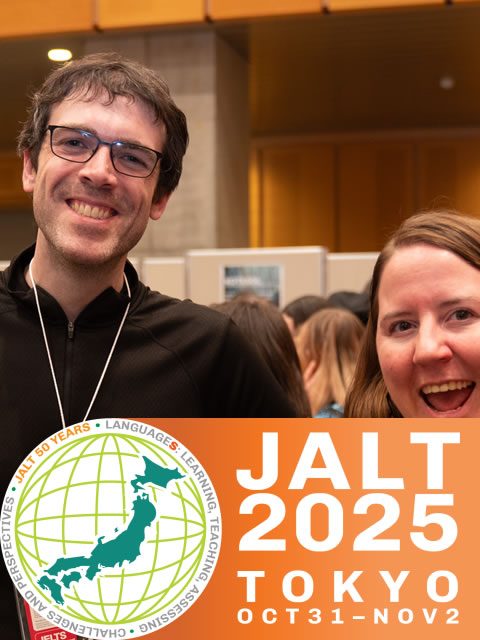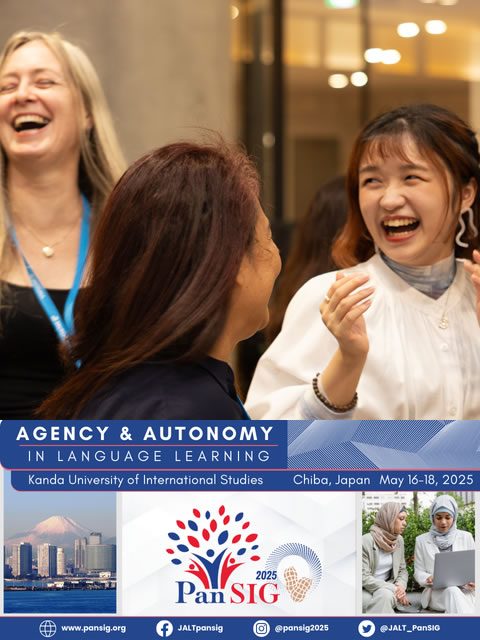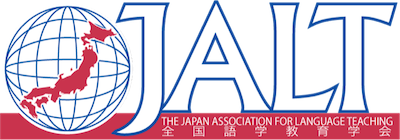Your cart is currently empty!
TnT Workshops
•
Language activities for the digital age
Friday, October 12, 2012
1:30 PM to 7:00 PM
Participants in the pre-conference Technology in Teaching (TnT) Workshops will be able to develop the technology side of their teaching skills through a series of practical, hands-on workshops, led by experts in technology in language teaching. There will be a particular focus on the use of newer technologies, but some workshops will aim to develop expertise with more conventional technology.
Room
1:30 – 3:00
3:00 – 3:30
3:30 – 5:00
5:00 – 5:30
5:30 – 7:00
54
How can Moodle help with teaching? – an introductory workshop – Forrest Nelson
Break
Exploring Moodle modules – Paul Daniels
Break
3. Speaking Projects with Moodle: Rubrics and Video Assessment – Don Hinkelman
53
Tech Tips for Teachers – Mark Shrosbree
Break
Concept mapping for EFL: map types and tools – Lawrie Hunter
Break
iPads in the Classroom, Basic and Intermediate – Daniel Beck
52
TnT information
Break
TnT information
Break
TnT information
TnT Workshop Abstracts
1. Title: How can Moodle help with teaching? – an introductory workshopPresenter: Forrest Nelson, Tokai UniversityAbstract: This workshop will guide teachers through the basics of constructing an online course using an open source course management system called Moodle. After exploring a sample Moodle course, participants who bring along a wireless ready notebook computer will be able to set up and edit their own class page by uploading files or creating assignments, discussion forums, and quizzes. Besides covering the basics, participants will be shown how they can get answers to questions and problems about Moodle. If possible, in the months before the conference, please send any questions to the workshop presenter at mrmori [at] me.com. Any questions sent prior to the conference will be discussed during the workshop.Bio: Forrest Mitchell Nelson is an Associate Professor at Tokai University located 1 hour south of Tokyo, Japan. His experience in technology for education has led him to experiment with different technologies that aid teachers in the classroom. Most recently, Forrest has been working on a framework for dealing with video recordings of student classroom conversation practice, student lead discussions and presentations. He is also looking at study experience in L2 and the role it plays in motivation and possibly in streaming.
2. Title: Exploring Moodle modulesPresenter: Paul Daniels, Kochi University of TechnologyAbstract: This workshop will demonstrate how teachers can use existing modules or create custom modules that can be plugged into Moodle in order to better support activities for the language classroom. This hands-on workshop will introduce several custom Moodle modules that were developed and are being used in Japan. Sample modules which participants can try include a slideshow module, a video board module, a voice shadowing module, and a Google Map module. The workshop will also look at ways that Moodle can be effectively used with mobile devices using iOS or Android OS. Finally the presenter will discuss how to install or develop custom modules for Moodle.Bio: Paul Daniels is a professor at Kochi University of Technology. His research involves CALL, ESP and project based-instruction. He has developed several custom modules for Moodle and mobile devices which can be downloaded from http://www.moodlemodules.netcourse.org.
3. Title: Speaking Projects with Moodle: Rubrics and Video AssessmentPresenter: Don Hinkelman, Sapporo Gakuin UniversityAbstract: This workshop will show how teachers can use the rubric assessment forms of Moodle 2.2+ for student presentation projects. With the Video Assessment Module teachers use digital cameras to video record student project presentations and upload to a class website. The new rubrics feature gives teachers an easy-to-use interface to evaluate student performances on multiple scales with qualitative and quantitative criteria. Although rubrics have been used effectively on paper for self-reflection and peer assessment, the Video Assessment Module manages the process with a custom Moodle module to save time for teachers and students. It combines self, peer, and teacher assessment and offers a mobile-ready tool to assess live performances as well. If time permits, we will also take a look at other language learning modules developed in Japan, such as MoodleReader for extensive reading, and PoodLL, the audio/video language laboratory.Bio: Don Hinkelman is an associate professor at Sapporo Gakuin University. He has been training teachers in Moodle since 2003 and developed custom modules for Moodle, including a content-sharing repository of courseware. His research involves blended language learning, co-authoring Blending Technologies in Second Language Classrooms from MacMillan: http://www.palgrave.com/products/title.aspx?pid=361538.
4. Title: Tech Tips for TeachersPresenter: Mark Shrosbree, Tokai UniversityAbstract: The use of technology in language education is commonplace. However, it is important to use technology selectively in such a way that it enhances both teaching and learning. This workshop will introduce some simple ideas which can help teachers manage the class, and help learners improve their language skills. Depending on the requirements of participants, the following areas will be covered: classroom management ideas; the use of online video resources; suggestions for Moodle; making handouts; developing a materials bank; assessment of speaking. The aim is to provide teachers with some pedagogical ideas they can take away from the workshop and apply immediately at work.Bio: Mark Shrosbree is a teacher at Tokai University in Kanagawa, Japan. He is interested in course design, methodology and materials development, for both general ESL courses and English for Specific Purposes (ESP). He maintains a personal website and several university home pages which hold many of the materials he has created. These materials are all freely available to other teachers, and are adaptable for a wide range of EFL courses.
5. Title: Concept mapping for EFL: map types and toolsPresenter: Lawrie Hunter, Kochi University of TechnologyAbstract: This workshop will introduce the participants to
(a) the main mapping types and tools in use today and
(b) mapping with PowerPoint, FreeMind and Cmap Tools software.
The participants will learn how to:
(a) use Cmap Tools to create Novakian concept maps , which involve the use of labelled links between nodes, and
(b) use PowerPoint to create information structure maps. Pre-reading is available athttp://www.core.kochi-tech.ac.jp/hunter/professional/anchoring2/index.html
Participants are requested to bring their own laptop computers with wireless capability and with PowerPoint and Cmap Tools installed (Cmap Tools: free download from http://cmap.ihmc.us/download/). Experimentation with Cmap Tools before the day is recommended.Bio: Lawrie Hunter directs the critical thinking and technical academic writing programs at Kochi University of Technology. His ISmaps (Information Structure maps) are expressions of Information Structures, the underlying structure of “Critical Thinking” (Greene & Hunter, Asahi Press 2002) and “Thinking in English” (Hunter, Cengage 2008). http://www.core.kochi-tech.ac.jp/hunter/.
6. Title: iPads in the Classroom, Basic and IntermediatePresenter: Daniel Beck, Tōyō Gakuen UniversityAbstract: iPads continue to grow in popularity with teachers and students. This workshop will demonstrate basic uses and apps to use with students or to manage classes. In addition, more advanced techniques such as wireless mirroring with an AppleTV. While this workshop is suitable for beginners, new techniques will be added from last year’s workshop. Participants will be encouraged to ask questions and share examples.Bio: Daniel Beck is an instructor at Tōyō Gakuen University’s Chiba campus and has been an active proponent of Apple hardware and software in and out of the classroom. He blogs about this topic at http://iostesol.blogspot.com/ and tweets at http://twitter.com/gtb (@gtb).

JALT2025 International Conference
2025年10月31日(金)〜2025年11月02日(日) 東京都渋谷 国立オリンピック記念青少年総合センター Friday, October 31 – Sunday, November 02, 2025 • National Olympics Youth Memorial Center, Tokyo, Japan

PanSIG Conference
PanSIG 2025 will be held May 16-18 in Chiba. PanSIG is an annual conference organized by JALT’s Special Interest Groups (SIGs).
